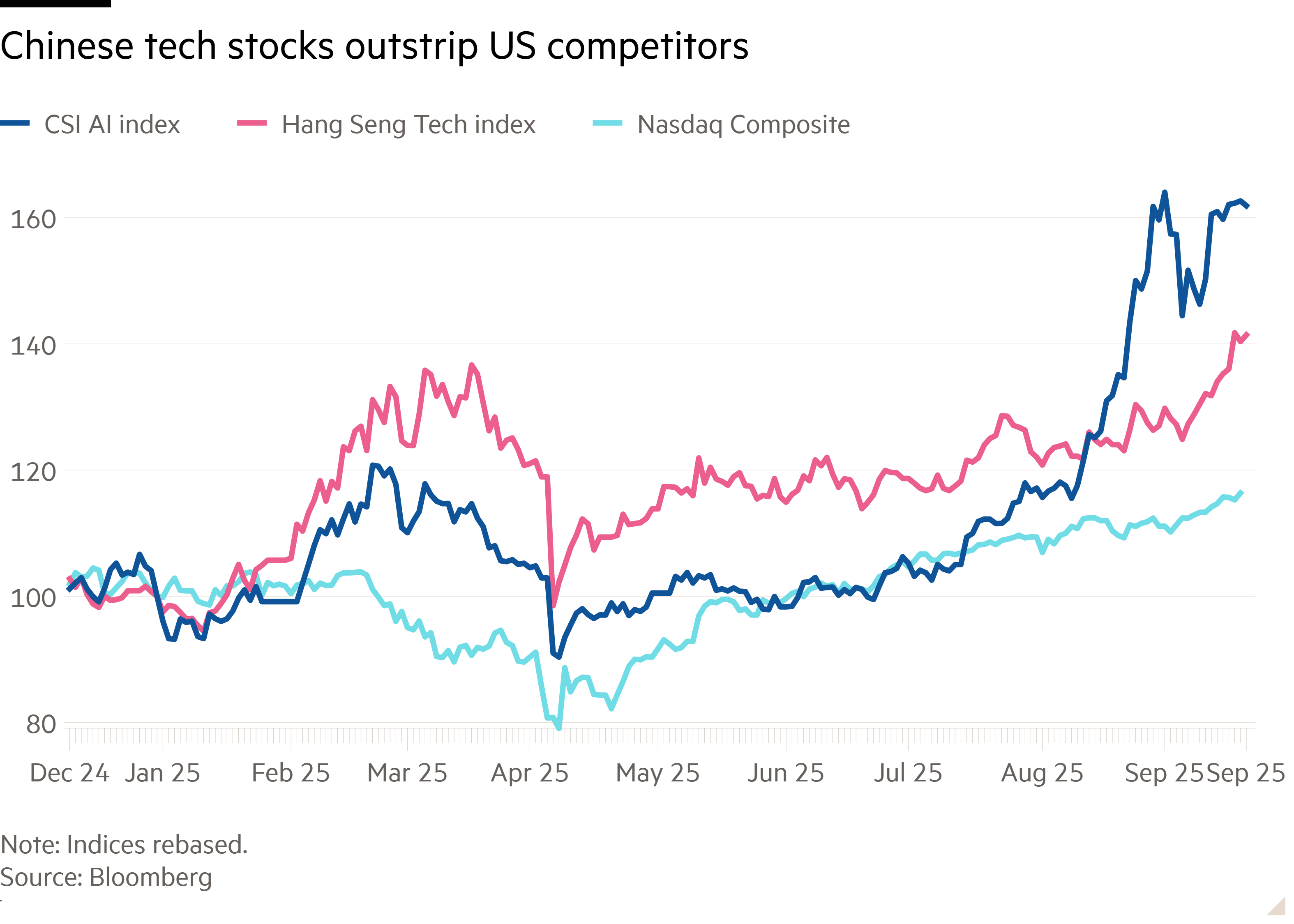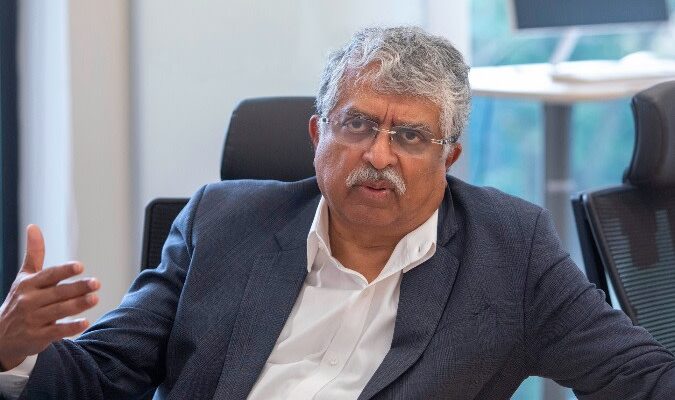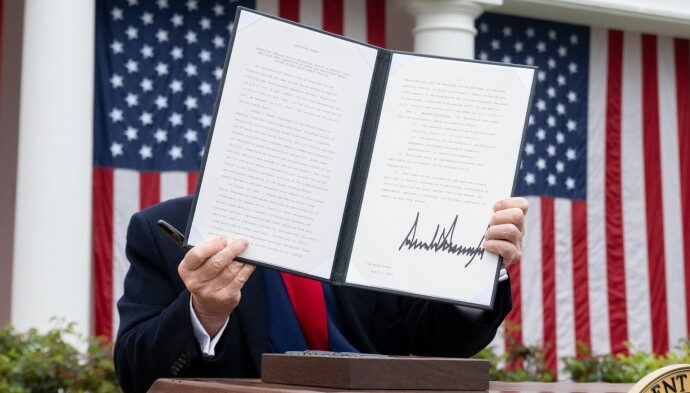Unlock the Editor’s Digest for free
Roula Khalaf, Editor of the FT, selects her favourite stories in this weekly newsletter.
Chinese tech stocks have massively outperformed their Nasdaq counterparts this year, with the trend being turbocharged over the past month by progress in both AI and Beijing’s push for chip self-sufficiency.
The Hang Seng Tech index of the 30 biggest Hong Kong-listed technology companies has soared 41 per cent year to date, compared to a 17 per cent gain in the Nasdaq, as mainland China’s largest tech groups attain the same investor appeal traditionally reserved for their US rivals.
The soaring share prices mark a triumphant comeback for a sector under siege for years from a regulatory crackdown and struggling economy that led to a foreign investor exodus from once popular stocks such as Alibaba and Tencent.
The rally, which began after DeepSeek’s artificial intelligence breakthrough at the beginning of the year, has accelerated in September on signs that Beijing’s push for advanced chip self-sufficiency is succeeding.
“The whole narrative on China’s AI has really changed,” said Winnie Wu, chief China equity strategist at BofA Global Research. “It feels like China is making breakthroughs on this very important bottleneck of AI computing power.”
Shares of tech giants Alibaba, Tencent and Baidu are up 96 per cent, 55 per cent and 59 per cent, respectively, this year, with Alibaba rising 31 per cent and Baidu 48 per cent in just the past month. Recent announcements of increased spending on AI infrastructure, progress on in-house advanced chip designs such as Baidu’s Kunlun line, and globally competitive AI models have added to investor excitement.
“The race is back on. The animal spirits are back,” said Albert Kwok, emerging markets equity portfolio manager at PGIM Jennison Associates.

The turnaround comes after a crackdown on China’s tech sector wiped as much as 80 per cent from the market value of companies such as Alibaba, which still trades at around half its peak market capitalisation of $860bn.
“If you look at the past few years, the tech sector was characterised by slow growth, not a lot of investments, the companies were essentially just focused on share buybacks,” Kwok said. “DeepSeek was the pivotal moment. It changed everything.”
Prior to DeepSeek, “Any capex by Chinese tech companies could be seen sceptically,” said Raymond Cheng, chief investment officer at Standard Chartered. But investors are now more willing to believe the investments will pay off, he said.
Alibaba’s Qwen AI model, Tencent’s Yuanbao and Baidu’s Ernie X1.1 have been well received by analysts and ranked high in industry benchmarking, sparking hope of widespread monetisation and productivity improvements across China’s 1.4bn people.
“This is the fourth industrial revolution. We are seeing [AI] revolutionise the way people work and interact with machines and even society,” said Bush Chu, a China equity portfolio manager at Aberdeen.
An orchestrated meeting between President Xi Jinping and China’s big tech groups earlier this year signalled a shift in government policy that has increased investor confidence in the sector, said Evan Ng, a portfolio manager at Chartwell Capital.
China’s tech rally comes despite a flaccid domestic economy beset by deflationary pressures and signs of slowing growth in the second half of the year. Investors and analysts were disappointed by weak corporate earnings in the second quarter, with return on equity for the CSI 300 index now stagnant for four consecutive quarters.
“The optimism is more about tech than China macro,” said Emmanuel Cau, head of European equity strategy at Barclays.
The excitement extends beyond the megacap groups listed in Hong Kong, encompassing chipmakers like Cambricon and SMIC, as well as innovative biotechnology companies. The CSI AI index has returned over 61 per cent this year and the Hang Seng biotech index is up 98 per cent.
Mainland Chinese investors have been the primary buyers of China’s AI story. But relatively cheap valuations and promising progress on technology have attracted attention from global investors who have long been underweight on the country.
“Foreign investors are back to rebuild exposure to China,” said Jack Siu, head of discretionary portfolio management for Asia at Lombard Odier.
“Chasing momentum is a global disease. Being underweight Chinese tech will be painful,” said Albert Saporta, group chief executive of GAM Holding.
Analysts still caution that the rally is being driven as much by speculation as any real progress in areas such as chip self-sufficiency.
“We don’t really know what is happening,” said BofA’s Wu, noting the lack of disclosure details from chipmakers claiming substantial advances. The market was interpreting China’s ban on buying foreign chips as evidence of progress, she added.
Otherwise, Wu noted, “Who would say no to Nvidia?”


